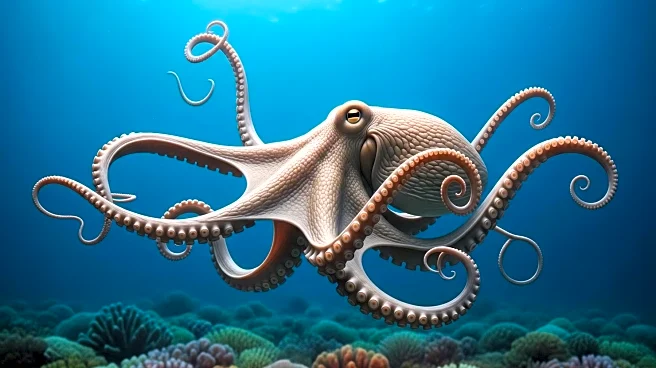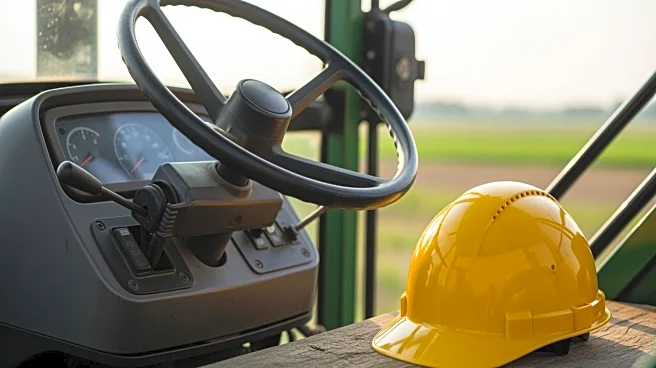What is the story about?
What's Happening?
Recent research conducted by the Marine Biological Laboratory in Woods Hole, Massachusetts, has unveiled new insights into the multitasking abilities of octopuses. The study, published in Scientific Reports, highlights the octopus's capability to use any of its eight limbs for various tasks simultaneously, such as reaching, tiptoeing, or grasping. This flexibility allows octopuses to perform complex movements, making them one of the most neurologically advanced creatures in the animal kingdom. The research involved analyzing underwater videos of octopuses filmed in diverse locations, including Spain and South Florida, to document specific arm movements. The findings could have implications for the development of soft robots, particularly in medical applications and exploring hard-to-reach areas.
Why It's Important?
The study's findings are significant as they offer a deeper understanding of the octopus's complex motor skills, which could inspire advancements in robotics. Soft robots, modeled after octopuses, could revolutionize fields requiring delicate and precise movements, such as surgery or underwater exploration. The octopus's ability to multitask with its limbs provides a blueprint for creating robots that can perform multiple functions simultaneously, enhancing efficiency and adaptability. This research not only contributes to biological knowledge but also opens new avenues for technological innovation, potentially benefiting industries reliant on robotics.















